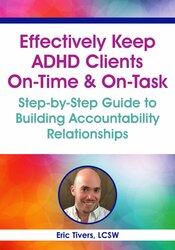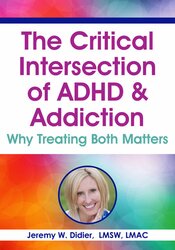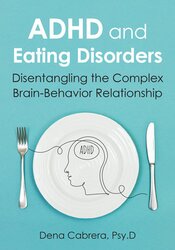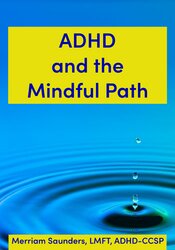Roberto Olivardia, PhD, venerated Harvard faculty member and clinical associate at McLean Hospital, specializes in ADHD treatment especially executive functioning issues, learning differences, and co-occurring conditions related to anxiety, body image and eating disorders in boys and men.
Ari Tuckman, PsyD, MBA, is a psychologist, international presenter, author, and ADHD expert. He is the author of four books on adult ADHD and has given more than 650 presentations, podcasts, interviews and more. He has appeared on CNN, National Public Radio, and XM Radio and has been quoted in The New York Times, USA Today, The Washington Post, The Boston Globe, USnews.com, The Philadelphia Inquirer, Men's Health, and many other media outlets.
Kelly A. Pickens, APNP, FNP-BC, ADC-C, is a family nurse practitioner with over 20 years of experience in a variety of clinical settings. With lived experience having an ADHD diagnosis, Kelly is deeply passionate about spreading awareness about and encouraging empathy for those who live with neurodivergence.
David Nowell, PhD, is a clinical neuropsychologist in private practice and adjunct faculty in neuropsychology. Nowell writes a popular blog at Psychology Today on motivation and time management and speaks internationally to clinicians on such topics as executive functioning, non-medication management of ADHD, and applying findings from Positive Psychology.
Dr. Michelle Frank, PsyD, specializes in diagnosing and treating ADHD, particularly in women. She is co-author, along with Sari Solden, MS, of the book A Radical Guide for Women with ADHD: Embrace Neurodiversity, Live Boldly, and Break Through Barriers.
Sharon Saline, PsyD, ADHD-CCSP, clinical psychologist and author of the award-winning book, What Your ADHD Child Wishes You Knew: Working Together to Empower Kids for Success in School and Life and The ADHD Solution Card Deck, specializes in working with neurodiverse children, teens, adults and families living with ADHD, learning disabilities, high-functioning autism, twice exceptionality and mental health issues.
Eric Tivers, LCSW, is the host of ADHD Rewired, the #1 rated ADHD podcast on Apple Podcasts. He's a leader in providing intensive online, video-based coaching and accountability groups for adults with ADHD.
Jeremy W. Didier, LMSW, LMAC, specializes in assessing and therapeutically treating adults who have ADHD, especially in treating the overlap between ADHD and Substance Use Disorders. She is a nationally recognized speaker, a frequent contributor to respected online media outlets, and is a passionate mentor for justice-involved individuals as they prepare to return to traditional society.
Dena Cabrera, PsyD, CEDS, focuses on ADHD and eating disorder treatment with 24 years of treating individuals, families, and groups. Her specialized training includes assessment, DBT, CBT, EMDR, ACT, and Polyvagal theory. She is the author of Mom in the Mirror: Body Image, Beauty and Life After Pregnancy and has appeared on nationally televised shows such as Anderson Cooper and The Early Show.
Merriam Sarcia Saunders, LMFT, ADHD-CCSP, has over 15 years of diverse experience in counseling children and adults across private practice, school settings, and case management. Dedicated to promoting resilience and healing, she is a Certified Clinical Trauma Professional and a Certified Mindfulness Clinical Practitioner.
















